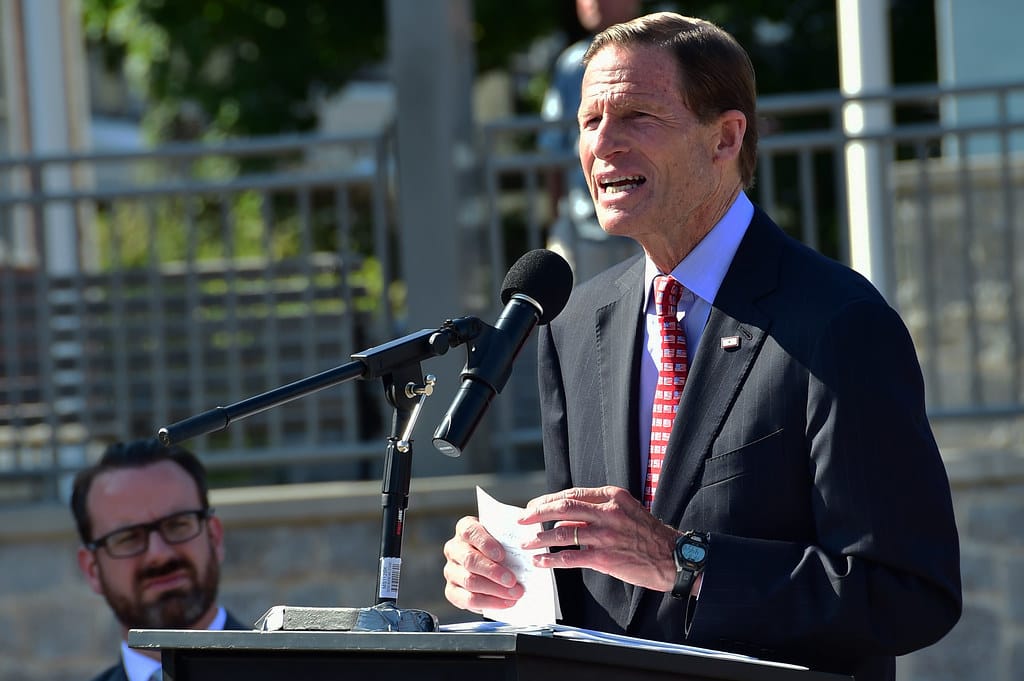Social Media Companies Noncommittal on Bipartisan Calls for Changes to Content Regulation
Platform representatives did not commit to legislation that would increase online protections for kids.

WASHINGTON, October 28, 2021 – Members of the Senate Commerce Subcommittee on Consumer Protection on Tuesday lobbed concerns at representatives from Snapchat, TikTok and YouTube about what their platforms put in front of kids, as the platforms did not commit to changes proposed by lawmakers who are winding down a month that included revelations of the negative impact social media can have on the mental health of kids.
During the hearing, subcommittee chairman Sen. Richard Blumenthal, D-Connecticut, said his staff had created a TikTok account and while at first they were shown videos of dance trends that have been popularized on the app, it only took one week for the app’s algorithm to place videos encouraging suicidal ideation on their feed. Blumenthal also noted that through viewing fitness-related videos geared toward a male audience on social media, it only took one minute to find posts promoting illegal steroids.
Blumenthal also raised other concerning videos his staff found, including a stunt whereby kids are encouraged to hold their breath until they lose consciousness.
In response, Michael Beckerman, TikTok’s head of public policy, stated that TikTok has “not been able to find any evidence of a blackout challenge on TikTok at all.” In response to Beckerman, Blumenthal said that his office had been able to find “pass out videos” and that he found Beckerman’s statements on the matter to be unreliable.
Tuesday’s hearing comes mere weeks after a Facebook whistleblower testified that the company does not take action on its own internal research that shows its photo-sharing app Instagram has a negative impact on kids health because it conflicts with its profit-driven motion. The testimony came after the whistleblower, Frances Haugen, leaked the research to the Wall Street Journal and the Securities and Exchange Commission. Since then, Facebook has halted development of an Instagram app for kids.
The hearing pressed tech platform representatives on social media policies that lawmakers say have led to the sale of illegal drugs to minors online, the exposure of minors to content which promotes self harm and access to children for sexual predators.
Senators also criticized the social media platforms’ lack of data privacy policies and contended that they often refuse to cooperate with law enforcement investigations as well as display indifference toward keeping children from using their platforms. Both Snapchat and TikTok’s representatives committed to providing access to the algorithms used in their apps after Senators asked whether they would.
However, the representatives would not all commit their companies to supporting proposed regulatory legislation such as the Children and Teen’s Online Privacy Protection Act written by subcommittee member Sen. Ed Markey, D-Massachusetts, which prohibits the collection of personal information without consent for kids ages 13 to 15 years., bans targeted advertising directed to kids, and lets kids and teens erase any personal info collected on them at any point with an erase button
The representatives also did not commit to supporting the EARN IT Act of 2020, which would amend Section 230 and allow social media platforms to be held liable in cases where they are suspected to have caused harm to children. Throughout the hearing, the social media representatives tended to emphasize the importance of trying to take an active role in controlling what their children are viewing on social media.










